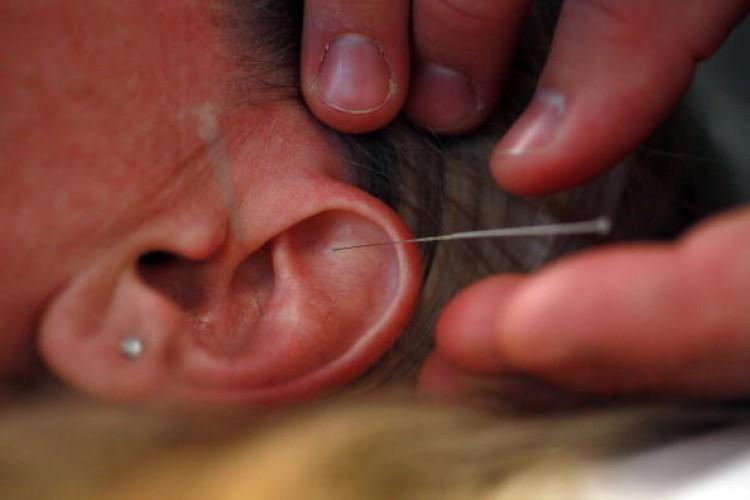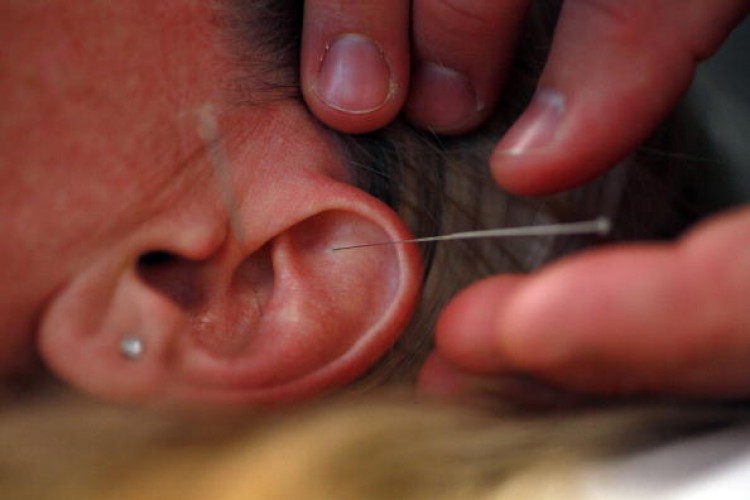Missing the Point on Acupuncture Regulation?
Regulation of acupuncture in the UK is voluntary, but would governing a fundamentally different paradigm using a Western approach work?

Acupuncturist Anne Lo (L) demonstrates a procedure on patient Lenka Romanova while Prince Charles (R) looks on at The NHS Gateway Clinic, an acupuncture and Chinese herbal medicine centre in London 11 December 2003. MichaeI Dunlea/AFP/Getty Images
|Updated:





